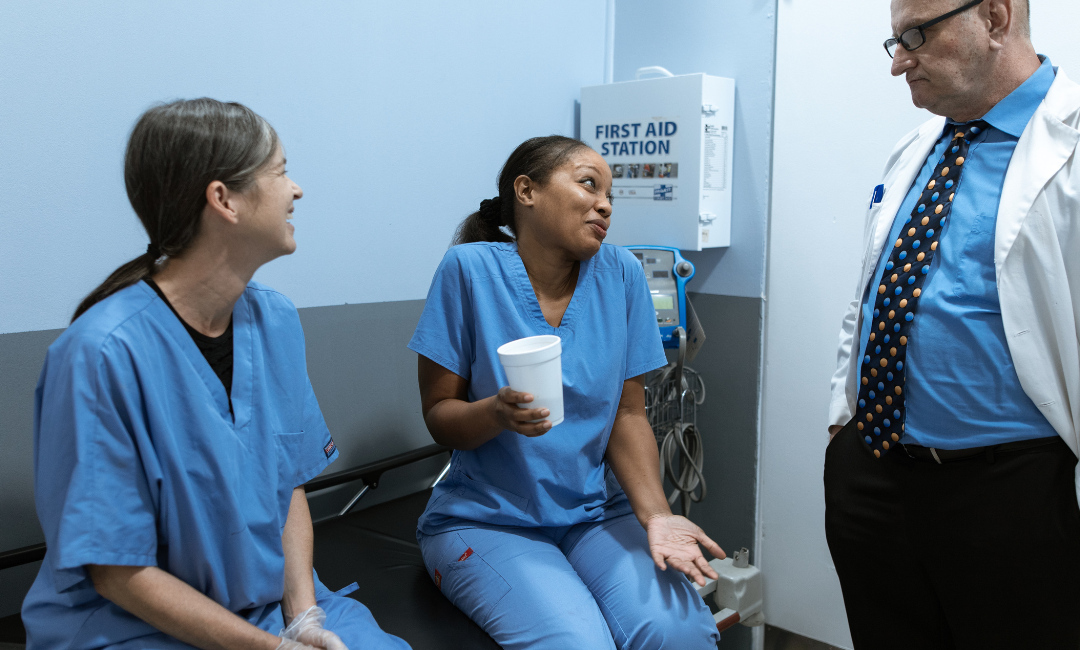The Three Cs in Practice
The Woman with Abdominal Pain who Coded
She came to the ER on an EMS stretcher, complaining of severe abdominal pain. We quicly transferred her from the gurney to a hospital bed, but as soon as we did, she coded. Chaos erupted. We immediately began CPR, calling for meds and supplies, moving in synchronized urgency.
Her family stood nearby, watching everything unfold. They were yelling at us, pleading with us to save her, begging us to do more.
“You’re not doing enough!” one of them screamed.
But we were doing everything humanly possible. We threw everything we had into trying to bring her back, but it wasn’t enough. She didn’t make it.
I remember looking up after we had called the time of death, locking eyes with her family. Their devastation was palpable. They were sobbing, some still yelling, and the weight of their grief hit me like a tidal wave.
Even though I knew we had done everything right, everything possible, it was hard not to internalize their words. For a moment, I wondered, “Could we have done more?”
The truth is, there was nothing more we could have done. Her condition was critical from the moment she arrived, and despite our best efforts, her body couldn’t recover.
I’ve replayed that day in my head so many times, but I’ve come to see it through the lens of the “three C’s”:
- I didn’t cause it. Whatever brought her to this critical state happened long before she arrived in our care. I wasn’t responsible for her condition.
- I couldn’t cure it. Medicine has its limits, and even our best efforts couldn’t reverse the damage her body had endured.
- I couldn’t control it. I couldn’t control how her body responded or how her family processed their grief.
Her family’s anger wasn’t really directed at me or my team. It came from their pain and helplessness, from their desperation to keep her alive. I understand that now.
At the time, I just felt the overwhelming sadness of losing her and the heaviness of witnessing their grief.
This moment is one that lingers. It’s a reminder of the impossibility of our job sometimes: the expectation to save lives in situations where saving them is no longer possible.
The Young Man Who Collapsed in the ER
A young man who came to the ER complaining of leg pain. Like so many hospitals, we were overwhelmed, and he’d been sitting in the waiting room for hours. Eventually, he came to the nurses’ station, asking to use the bathroom. As he walked toward it, he collapsed in the hallway.
I’ll never forget running to him, starting compressions, and realizing the severity of his condition too late. Despite all our efforts, we couldn’t save him. His condition had been much more serious than anyone realized, but because we were so short-staffed and overwhelmed, he hadn’t been seen quickly enough.
I didn’t blame myself for what happened. I knew I had done everything I could in the moment, but I felt an overwhelming sadness for him and anger at the system. He didn’t get the care he deserved because we didn’t have the resources to provide it. The waiting room was packed, the ER staff was stretched thin, and patients like him were left to wait too long, not because we didn’t care, but because there simply weren’t enough of us to keep up.
That day, I didn’t just mourn his loss, I felt an acute sense of injustice. Healthcare is supposed to be about healing, but without the resources to care for people properly, it felt like we were failing the very people who needed us most.
The “three C’s” have been a small comfort as I try to process what happened that day:
- I didn’t cause it. I wasn’t responsible for the lack of resources, the overcrowding, or the systemic failures that led to delays in his care.
- I couldn’t cure it. By the time he collapsed, his condition had progressed too far for us to save him.
- I couldn’t control it. I wasn’t in control of the staffing shortages or the overwhelming number of patients that day.
This memory stays with me, not because I feel guilty, but because it reminds me of how deeply broken the system is. It fuels my anger and my determination to advocate for change. Patients deserve better. Nurses deserve better. And moments like this shouldn’t be inevitable just because we lack the resources to provide timely care.
Self-Care: More Than Just a Buzzword
In a profession where emotional and physical exhaustion is the norm, self-care often gets overlooked. But it’s more than just a buzzword, it’s a necessity. Finding ways to recharge should be taught alongside clinical skills.
Self-care isn’t just about taking bubble baths or going for a walk. It’s about setting boundaries, saying no when necessary, and finding moments of peace even during a hectic shift. It’s also about advocating for ourselves in environments that don’t always make it easy to prioritize our well-being.
Burnout doesn’t happen overnight. It creeps up slowly, in the form of exhaustion, cynicism, and a reduced ability to care for patients. But what if, instead of just managing the symptoms of burnout, we addressed the root causes? What if our work environments were designed with self-care in mind?
Why Nurses Stay
Despite the challenges, many of us remain in the profession because of the deep sense of purpose that nursing provides. Helping others in their most vulnerable moments is incredibly rewarding, and while it comes with its emotional costs, those brief moments of connection — when a patient says, ‘Thank you,’ or when you see someone recover — make it all worthwhile.
I think about the patient who grabbed my hand after a long shift and said, “Thank you for taking care of me.” Or the family who pulled me aside to say, “You gave us so much comfort during the worst moment of our lives.” These moments don’t erase the pain, but they remind me why I became a nurse in the first place.









